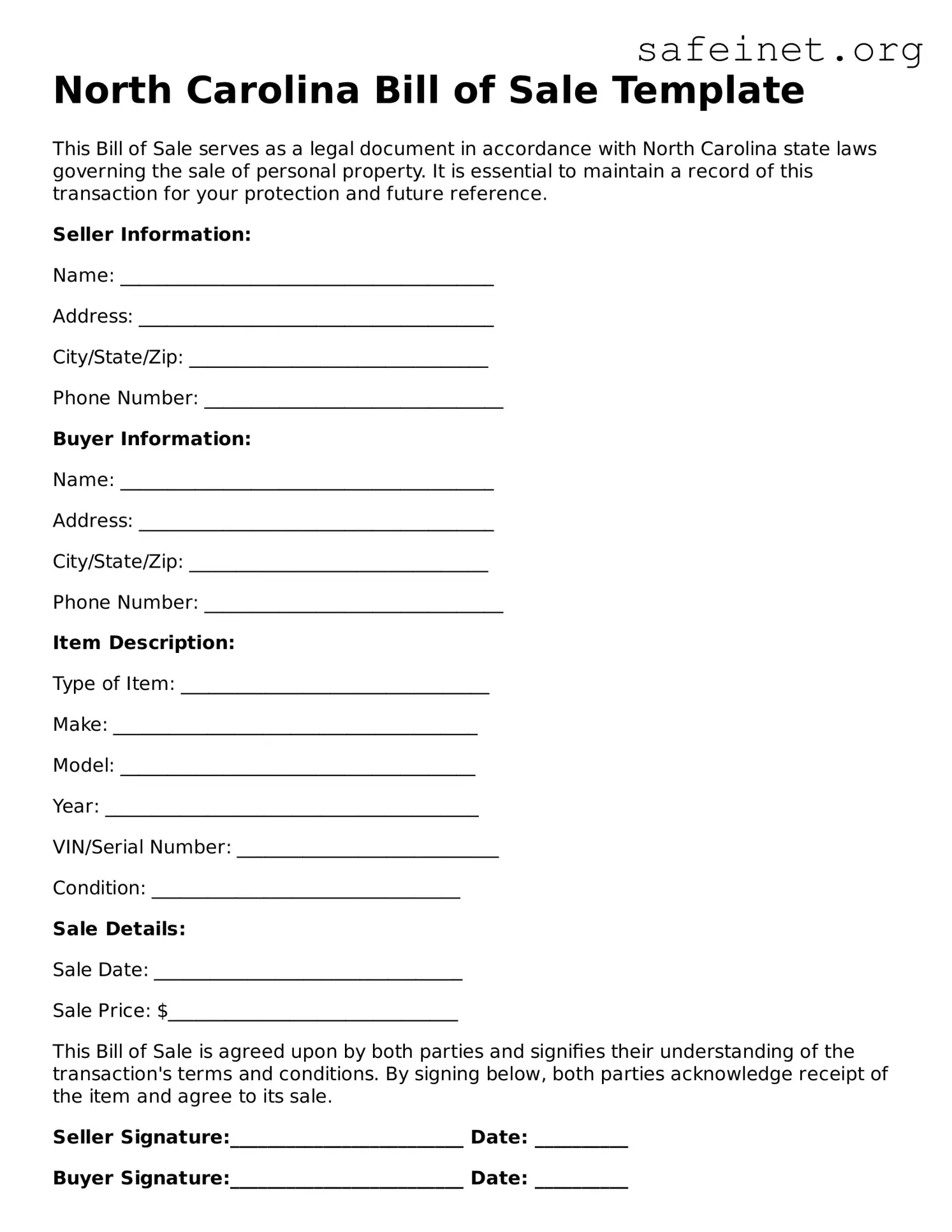North Carolina Bill of Sale Template
This Bill of Sale serves as a legal document in accordance with North Carolina state laws governing the sale of personal property. It is essential to maintain a record of this transaction for your protection and future reference.
Seller Information:
Name: ________________________________________
Address: ______________________________________
City/State/Zip: ________________________________
Phone Number: ________________________________
Buyer Information:
Name: ________________________________________
Address: ______________________________________
City/State/Zip: ________________________________
Phone Number: ________________________________
Item Description:
Type of Item: _________________________________
Make: _______________________________________
Model: ______________________________________
Year: ________________________________________
VIN/Serial Number: ____________________________
Condition: _________________________________
Sale Details:
Sale Date: _________________________________
Sale Price: $_______________________________
This Bill of Sale is agreed upon by both parties and signifies their understanding of the transaction's terms and conditions. By signing below, both parties acknowledge receipt of the item and agree to its sale.
Seller Signature:_________________________ Date: __________
Buyer Signature:_________________________ Date: __________
Witness:
Name: ________________________________________
Signature: ____________________________________ Date: __________
For a copy of this Bill of Sale, both parties should retain a signed original. It is advisable to consult with a legal professional if questions arise regarding this form.
